Last Meal and the Great Passing away of Buddha
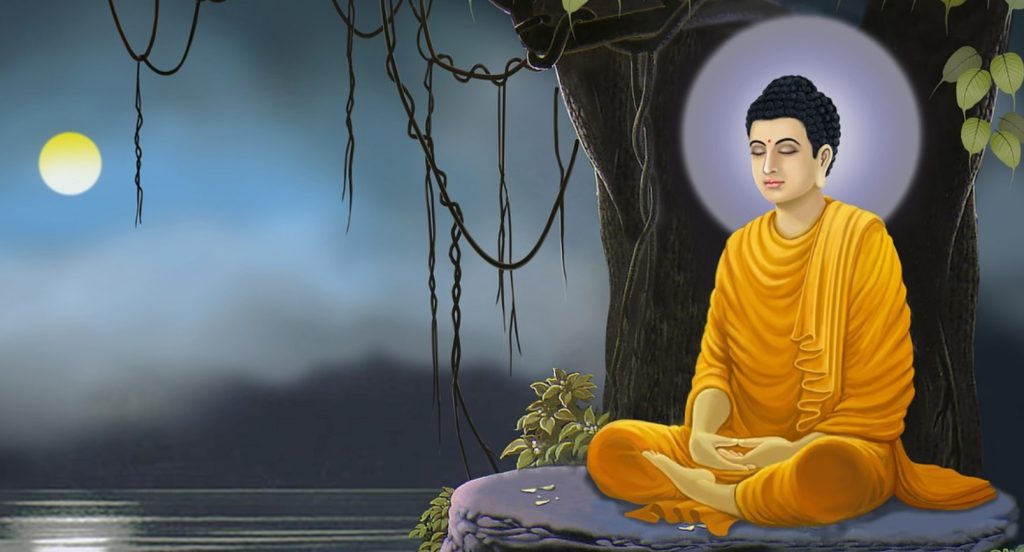
The lord left Vaishali accompanied by five hundred disciples (monks). On the way, he arrived at Pava and halted at the mango grove of a goldsmith named Chunda. Chunda was glad to hear this news. So he hastened to the lord and invited the lord and his order (disciples) to dine at his house on the morrow.
Next day, Chunda prepared different varieties of foods- sweet rice, cake and a dish of pork (Some take this dish as mushroom) and announced the hour to the lord. The lord proceeded towards his house and partook the food served to, him. As and when the lord had partaken the meal, he felt an urge for dysentry and a great sharp pain disturbed Him.
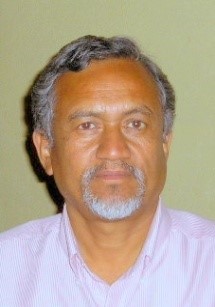
The lord bore the pain without any complaint and proceeded towards Kushinagar. On the way, he took bath in the river Kakutsa, drank water and took a seat in its bank. The lord wished that Chunda may not reproach himself or he may not be reproached by others for serving the food which made him to die. So he asked Ananda to transmit his message to Chunda with the words: “After I am gone, tell Chunda that he will receive a great reward in future birth; for, having eaten of the food served by him, I am about to pass away. There are two gifts which will be blessed above all others. The first one is that of Sujata before my attainment of Buddhahood and this gift of Chunda before I finally pass away.”
Thereafter, the lord, accompanied by Ananda, crossed the river Hiranyavati and arrived at the Saal grove of the Mallas. Here the lord asked Ananda to spread a couch between twc Saal trees making the head of couch to turn towards the north. Then the Compassionate One lay himself down on his right side (lion bed). During that auspicious hours, the great god Brahma and many other deities appeared before and paid reverence to the Buddha with scented flowers and divine perfumes.
Recalling this event, the lord told Ananda that worshipping with scented flowers and divine incense merely will not reverence or respect the Tathagata. Those who continually accomplish all the small and great 1uties and those who spend a correct life pursuing the Tathagata’s precepts reverence and respect him much.
At this time, hosts of the gods and spirits were assembling to behold the passing away of the lord. Among them, some were lamenting at the thought of the lord’s death. They were expressing: “Too soon will the lord pass away! Too soon will the eye in the world pass away!” Understanding the weakness of some of these deities, the lord asked them to be free from passion and told them: “Impermanent, indeed, are all component things.”
After this, the lord suggested that the lay disciples who rever the lord may take these four places as the sacred spots for pilgrimage and the places were:
(1) Lumbini, where the Tathagata took his birth;
(2) Buddhagaya, where the Tathagata attained the knowledge of Supramundane Enlightenment;
(3) Deer Park at Sarnath where the Tathagata first turned the wheel of law; and
(4) Kushinagar where the Tathagata passed away. These are the four worth visiting places where the monks, nuns and laity will come and pay their homage recollecting the sweet memory of the Tathagata.
At this time, Ananda made many queries to the lord about the nature of their dealings with womenfolk. The lord replied him not to look at womenfolk while walking; not to talk with them if he happens to see her by chance; and to remain himself absorbed in mindfulness if the womenfolk herself comes to talk.
To an another question raised by Venerable Ananda on how to utilise the mortal remains of the Buddha after his passing away, the lord told Ananda to cremate the body of the Buddha in the fashion of a dead chakravartin (universal monarch). He added further with the words:
After the cremation, some monument or chaitya or stupa be made above the mortal remains of the All Enlightened One. While doing so,
(1) the bone ‘of the All Enlightened Ones, which were left behind, be utilised for making the monument (stupa or chaitya).
(2), the bone of Pratyaka Buddha (Individual Buddha) also are fit for constructing the monument.
(3) the bone of Arhat or Sravak Buddha (Disciple Buddha) also can be utilised in the same way.
(4) the bones of a universal monarch may also be utilised in this very’ manner.
By seeing the monuments (Stupas), the lay disciples will recollect that this is th-e Stupa of the All Enlightened One; this is the Stupa of an Individual Buddha, this of an Arhat (Disciple Buddha); and this of a universal monarch. They can gladden their hearts and pay regards to the the stupa. Thus they will acquire virtue out of reverence towards the Enlightened Ones.
Ananda who was listening the words of the lord could not resist his heart. Shedding tears on the recollection that the Buddha will be passing away very soon, Ananda went to a corner and began to weep placing both his hands upon the head. Seeing this situation, the lord asked Ananda not to weep and gave instructions “Every person whom we love in this world has to meet decay. Tragedy and seperation are the parts of life. Decay is inherent in all component things.
He added further, “Ananda, you have served the Tathagata with all your mental, verbal and physical efforts. You have satisfied the lord by your, service and dedication. You have earned a lot of virtues in this way. You too will be liberated from the miseries of this world.”
At this time, there was a wandering friar at Kushinagar named Subhadra. As he listened that the Buddha would be passing today, he hastened to the Saab grove and asked Ananda to arrange an audience with the lord. Ananda did not wish to disturb the lord at the last hours of his life. So he did not permit Subhadra to meet the lord.
The Buddha came to know of this fact. He told Ananda that the Buddha is a rare phenomenon in the world. There is still time to meet such a rare phenomenon. After a while the Tathagata could not be seen. Therefore, send here to Subhadra. He has not come to disturb the Buddha. He has come to find the true path. Hearing these words, Ananda, took Subhadra to the lord. Subhadra sat in front of the lord bowing his head. Then he put forward his questions in this way: “Lord, all the ‘Masters claim their own path as the greatest one. Whether it is a right claim or not?”
The lord responded: “Subhadra, this is not the time to give answer to such questions. But listen, I will show you the path.” After saying these words, the Buddha gave the following teachings:
“Subhadra, in whatsoever religion, the Noble Eightfold Paths are not pursued properly, there cannot be found any kind f sainthood, be it of first, second, third or the fourth degree. In he religion where the Noble Eightfold Paths are abided by, there he sainthood can always be found. Whensoever the brethren ill abide themselves by the eightfold paths, the world will not be bereft of the enlightened ones.” These teachings made Subhadra to attain the fruits of the fourth degree (Arhat). He asked conversion from the lord unto is path and thus became the lords last disciple.
After giving instructions to Subhadra, the Buddha called on to Ananda and told: “After my departure, you may think that the teacher (Sasta) has departed. Now we don’t have any teacher for listening the discourses. After my departure, let the w, taught by me, be your teacher.” After my death, the mendicants may not use the word “Brother (Abuso)” while addressing to the senior mendicants. They have to use the word ‘Ausman” or “Bhantay’, i.e., Revered r or Venerable Sir while addressing to their senior ones. But the senior one may use Abuso (brother) while addressing to the junior ones. If there is any doubt or misgiving among the mendicants in regard to the path showed by me, there is still time to make such queries.
Ananda expressed his astonishment to these words of the lord. As no one came forward in response to this appeal, the lord expressed: “Decay is inherent in all component things; work out your salvation with diligence.’ And these were the last words of the Buddha.
Thereafter the lord entered into the first absorbtion, and then into the second, third and fourth. Rising from the fourth absorbtion, he entered into the station of infinity of space, infinity of thought, infinity of voidness, infinity of consciousness and unconsciousness and then to infinity where both sensation and ideas passes away entirel. he passed again into these spheres in reverse order. Again he passed out of these spheres in reverse order and as and when he reached the station of fourth or last absorbtion, the made a great departure from this world.



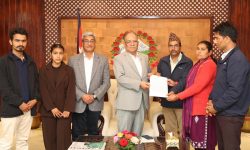
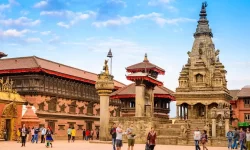

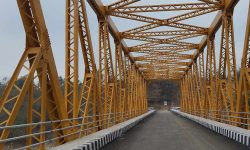

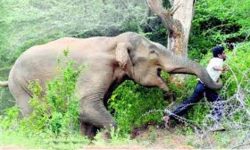
 सगरमाथा आरोहणका लागि ३५२ आरोहीले लिए अनुमति
सगरमाथा आरोहणका लागि ३५२ आरोहीले लिए अनुमति भारतले रोक्यो नेपाली चियाको निर्यात
भारतले रोक्यो नेपाली चियाको निर्यात त्रिभुवन विमानस्थलबाट ८५० ग्राम सुनसहित एक महिला पक्राउ
त्रिभुवन विमानस्थलबाट ८५० ग्राम सुनसहित एक महिला पक्राउ कसरी गर्ने पदयात्राको तयारी ?
कसरी गर्ने पदयात्राको तयारी ? मुस्ताङमा एकै वर्षमा पुगे चार लाख पर्यटक
मुस्ताङमा एकै वर्षमा पुगे चार लाख पर्यटक युएईमा आएको बाढीमा परी एक नेपालीको मृत्यु
युएईमा आएको बाढीमा परी एक नेपालीको मृत्यु गायिका एलिना चौहानले गरिन् बिहे (तस्बिरहरु)
गायिका एलिना चौहानले गरिन् बिहे (तस्बिरहरु) जापानमा गयो शक्तिशाली भूकम्प
जापानमा गयो शक्तिशाली भूकम्प सुनको मूल्य घट्यो, कतिमा हुँदै छ किनबेच ?
सुनको मूल्य घट्यो, कतिमा हुँदै छ किनबेच ? युएईसँग हारेसँगै नेपालकाे एसिया कप खेल्ने सम्भावना समाप्त
युएईसँग हारेसँगै नेपालकाे एसिया कप खेल्ने सम्भावना समाप्त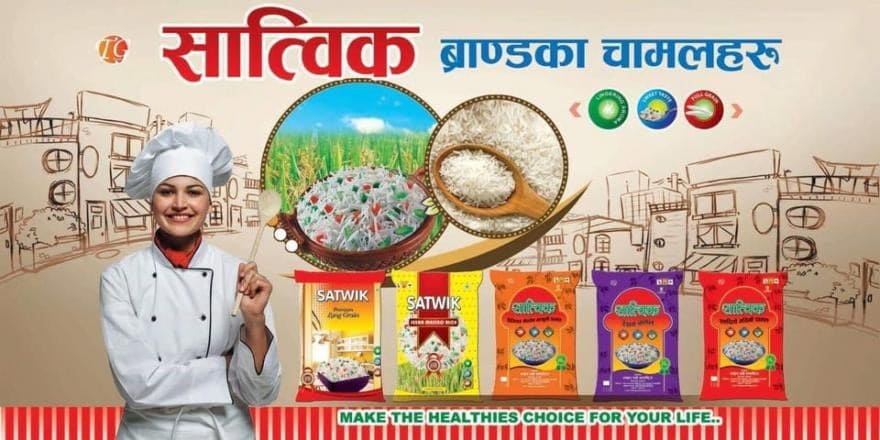
प्रतिक्रिया